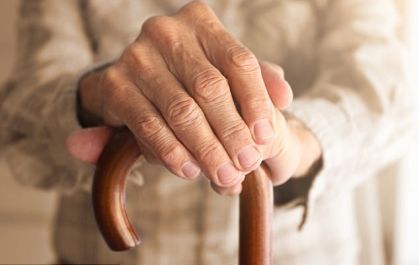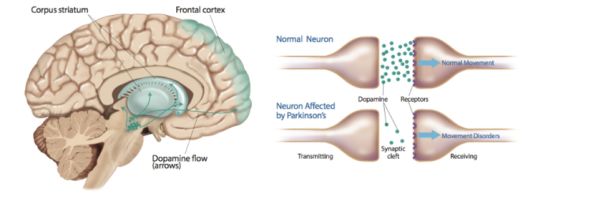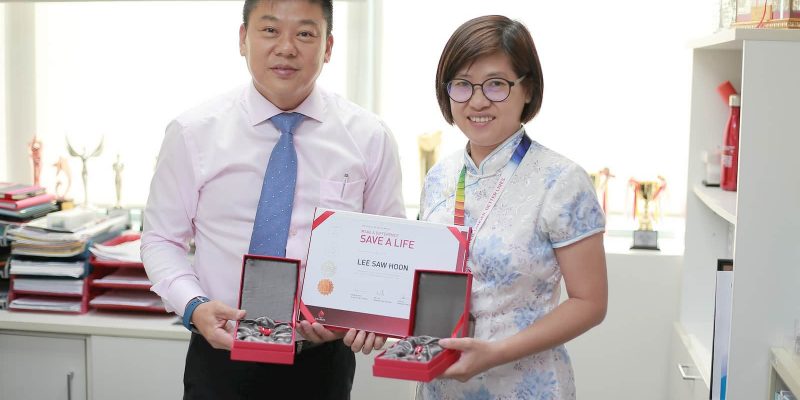Parkinson’s disease and treatments affect the way you move. It happens once there’s a problem with specific nerve cells within the brain.
Symptoms of Parkinson’s disease and treatments is progressive, which implies it gets worse over time. However usually this happens slowly, over a few years.
Causes of Parkinson’s disease
In Parkinson’s disease, certain nerve cells (neurons) in the brain gradually break down or die. Many of the symptoms are due to a loss of neurons that produce a chemical messenger in your brain called dopamine. When dopamine levels decrease, it causes abnormal brain activity, leading to signs of Parkinson’s disease.
The cause of Parkinson’s disease is unknown, but several factors appear to play a role, including:
Your genes
Researchers have identified specific genetic mutations that can cause Parkinson’s disease, but these are uncommon except in rare cases with many family members affected by Parkinson’s disease. However, certain gene variations appear to increase the risk of Parkinson’s disease but with a relatively small risk of Parkinson’s disease for each of these genetic markers.
Environmental triggers
Exposure to certain toxins or environmental factors may increase the risk of later Parkinson’s disease, but the risk is relatively small.
Risk factors for Parkinson’s disease
Age
Young adults rarely experience Parkinson’s disease. It ordinarily begins in middle or late life, and the risk increases with age. People usually develop the disease around age 60 or older.
Heredity
Having a close relative with Parkinson’s disease increases the chances that you’ll develop the disease. However, your risks are still small unless you have many relatives in your family with Parkinson’s disease.
Gender
Men are more likely to develop Parkinson’s disease than are women.
Exposure to toxins
Ongoing exposure to herbicides and pesticides may put you at a slightly increased risk of Parkinson’s disease.

Symptoms of Parkinson’s Disease and Treatments
Parkinson’s symptoms are also associated with movement (motor symptoms) or unrelated to change (non-motor symptoms). Every person with Parkinson’s disease can experience symptoms differently. These are the overall symptoms of Parkinson’s disease:
- Slowness of voluntary movements
- Particularly in the initiation of such actions as walking or rolling over in bed
- Decreased eye blinking and monotonous speech
- A shuffling gait with poor arm swing and crooked posture
- Unsteady balance; issue rising from a sitting position
- Continuous “pill-rolling” motion of the thumb and finger
- Abnormal tone or stiffness in the trunk and extremities
- Swallowing problems in later stages
- Lightheadedness or fainting once standing

How to diagnose Parkinson’s Disease
Confirming someone has Parkinson’s will take your time as there are different conditions with symptoms of Parkinson’s disease and treatments. Other than that, there is also currently no final check for diagnosing Parkinson’s.
Making an accurate diagnosis of Parkinson’s — significantly in its early stages — is tough.
However, a skilled practitioner can come to a reasoned conclusion that it is Parkinson’s disease. There is no standard treatment for Parkinson’s disease. Treatment for each person with Parkinson’s is based on his or her symptoms. Treatments include medication and surgical therapy. Other treatments include lifestyle modifications, like getting more rest and exercise. There are many medications available to treat the Parkinson’s symptoms, although none yet that reverse the effects of the disease.
It is common for people with PD to take a variety of these medications — all at different doses and at different times of day — to manage symptoms.
Treatment for Parkinson’s disease
Parkinson’s disease can’t be cured, but medications can help control your symptoms, often dramatically. In some later cases, surgery may be advised.
Your doctor may also recommend lifestyle changes, especially ongoing aerobic exercise. In some cases, physical therapy that focuses on balance and stretching also is important. A speech-language pathologist may help improve your speech problems.
Daily living activities
Daily living activities — such as dressing, eating, bathing and writing — can be difficult for people with Parkinson’s disease. An occupational therapist can show you techniques that make daily life easier.
Some types of alternative medicine may help people with Parkinson’s disease, including:
Massage
Massage therapy can reduce muscle tension and promote relaxation. These services, however, are rarely covered by health insurance.
Acupuncture
During an acupuncture session, a trained practitioner inserts tiny needles into many specific points on your body, which may reduce your pain.
Yoga
In yoga, gentle stretching movements and poses may increase your flexibility and balance. You may modify most poses to fit your physical abilities.
Meditation
In meditation, you quietly reflect and focus your mind on an idea or image. Meditation may reduce stress and pain and improve your sense of well-being.
Tai chi
An ancient form of Chinese exercise, tai chi employs slow, flowing motions that may improve flexibility, balance and muscle strength. Tai chi may also prevent falls. Several forms of tai chi are tailored for people of any age or physical condition. A study showed tai chi may improve the balance of people with mild to moderate Parkinson’s disease more than stretching and resistance training.
Music or art therapy
Music or art therapy may help you to relax. Music therapy helps some people with Parkinson’s disease to improve their walking and speech. Participating in art therapy, such as painting or ceramics, may improve your mood and help you relax.
Pet therapy
Having a dog or cat may increase your flexibility and movement and improve your emotional health.
Get Insurance Advice
Financial Security – It is There When Needed
Levine can help you to protect yourself and the future of your loved ones. Get immediate financial security. Don’t touch your savings. Let insurance provide it.
She can help provide financial security in times of hardship and will be able to ease the financial burden of your dependents in your absence.
Contact our AIA INSURANCE AGENT LEVINE LEE to get in touch with us and start your personal coverage, group coverage or choose your plan now. Get covered correctly. Be advised correctly. Call Levine Lee (+6012-684 0948) today to be advised on the best insurance protection personalized for you. Or send us the form below on your interest.

At Red Cover Life Planning, we emphasize our people- helping them grow, expanding their abilities, and discovering new opportunities. Join us now to be part of our team and story.








